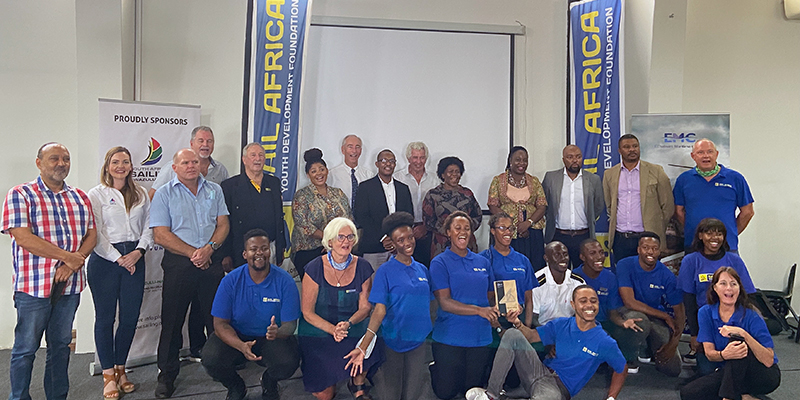
Sail Africa on Promoting Diversity and Making Change for Good
Sport has a major role to play in ensuring a sustainable future for our planet.
In 2018, World Sailing and 11th Hour Racing joined forces to create the World Sailing 11th Hour Racing Sustainability Award. The award celebrates the effective execution or ongoing delivery of high-impact, highly replicable sustainability initiatives aligned with the World Sailing Sustainability Agenda 2030. Entrants are invited from National Federations, sailing clubs, event organising committees, individual sailors, or any other sailing-related organisations.
Sail Africa Youth Development Programme proved to be the leading light in 2021, voted the winners by the public among an inspiring calibre of nominees. Their empowering programme focuses on increasing the participation of ethnically diverse and female sailors in Durban, South Africa, with the positive effects lasting a lifetime.
Assisted by the $10,000 USD funding provided by 11th Hour Racing, the programme continues its clear and decisive path towards promoting diversity and sustainability in sport. World Sailing took the chance to catch up with Sail Africa Operations Director, Jackie de Fin on what it meant for Sail Africa to win the award and what the future holds for the programme.
World Sailing: For those that haven’t heard about the Sail Africa Youth Development Programme, can you tell us a little more about it?
Jackie: The main aim with Sail Africa is to increase the participation of black sailors and female sailors through education and on-water opportunities. Sailing in Durban, South Africa was previously considered an exclusive pursuit and now it offers young people the chance to experience and enjoy sailing as a sport. We can think of no better way to empower women than through the sport and the opportunities that go with it.
WS: Tell us a bit about the success of the programme so far?
Jackie: We never foresaw just how impactful the programme was going to be. We have seen the change it has had across all age groups and areas of lives, from schoolgirls to university students and the unemployed. If we take the Train to Win programme as an example, girls have gone on to win regattas and trophies, race internationally and aspire to make sailing their full-time careers which would have not been a possibility previously.
WS: Sailing is at the core of what you do but it has become about much more than that. How has it impacted lives outside of sailing?
Jackie: The programme has certainly doubled up as a life skills initiative, ensuring positive sustainable outcomes. It has challenged stereotypes and empowered women, with many of them going on to be offered work and bursaries because of their experience.
When they are not out on the water, other activities include learning about environmental issues and taking part in clean-ups around the marina. Students have taken responsibility for this and it is something they feel passionately about.
WS: What did it mean to you and those involved to win the award?
Jackie: We absolutely did not expect to win at all, but it was amazing to be recognised for our work and this feels like the pinnacle! One of our instructors, Praise, was on the Zoom call when Sail Africa were announced winners and he was so overcome with emotion that he couldn’t speak at all. That emotion and pride filtered through to all the students and those touched in some way by program. Winning the 11th Hour Sustainability Award has acted as a springboard for us all, motivating us to continue to make a difference locally and globally.
WS: How will the Sail Africa Youth Development Programme plan to use the funding provided by 11th Hour Racing?
Jackie: The money will be used to continue to train the young sailors coming through our programme. A lot of the students from the township cannot afford to get to us so we will continue to fund this, alongside important initiatives like swimming lessons, as most of our sailors cannot swim.
For us, a major issue is that the marina is in a dirty state. It impacts our dinghy sailing and has much wider environmental consequences. We want to train and empower our young facilitators to go out there and create change. The funding will help massively with this as we continue to educate them and encourage them to be climate and environmental activists.
You can learn more about the Sail Africa Youth Development Programme here and learn more about previous winners of the World Sailing 11th Hour Sustainability Award here.
Header image credit: Noluthando Zondi